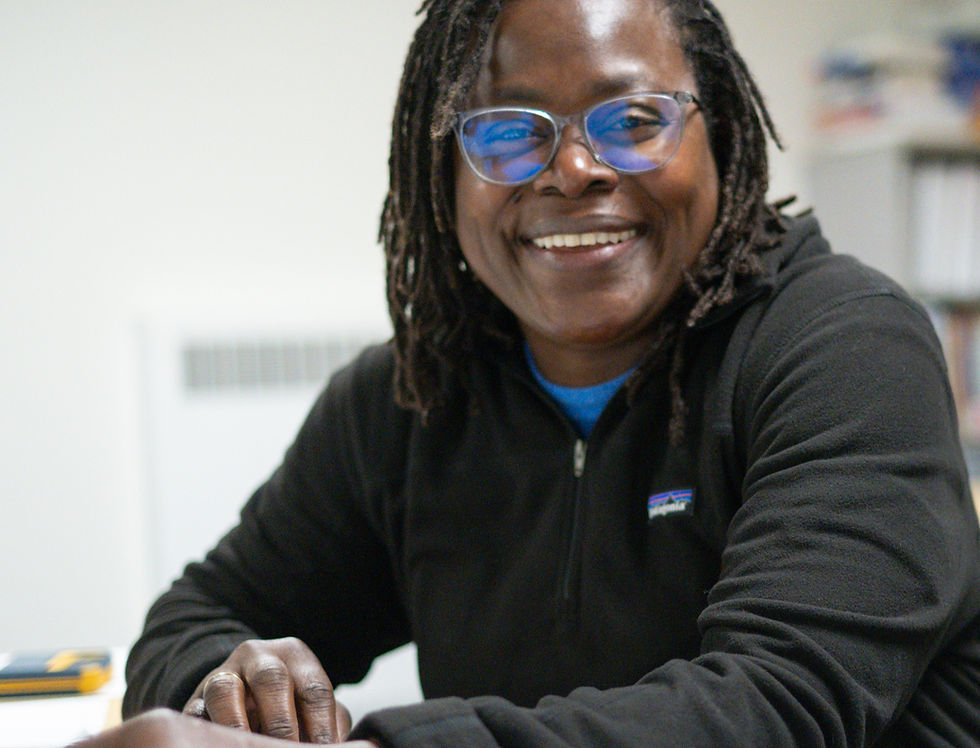Vote for Juneau's future: A well-funded, vibrant capital city
- Meilani Schijvens

- Sep 24, 2025
- 3 min read

By Meilani Schijvens
The message being forwarded with the citizen initiative ballot measures is one of municipal gluttony. Propositions one and two tell you to vote to cut everyone's taxes because the City and Borough of Juneau has far too much money, and really should have less of it. But looking at the data I only see a city that is underfunded.
My family has a cabin in a community in the Lower 48, and every time we visit, we say, oh how lovely, it's like Juneau, but with sufficient funding. Their police force is fully staffed because their wages are competitive. Paved biking and walking trails connect the community, and in winter those trails — and sidewalks — are cleared after every snowfall. Childcare subsidies ensure enough slots for 80% of children under five. The riverbanks running through are beautifully stabilized against erosion. And despite having a smaller population than Juneau, the community has invested millions of dollars more to address workforce housing, with 250 new housing units being added annually. Each time we visit, we think: Juneau could have this, if only we were willing to pay for it. It sure is nice to visit though.
A "yes" vote on Propositions 1 or 2 take us in the polar opposite direction of this municipal fantasy. Currently (unless you change it dear reader) the most likely outcome of the election as it stands is a "yes, yes, no" vote. This would reduce CBJ funding by $10-$12 million annually, and drop our mill rate cap. For context, our mill rate is already capped at 12 mills, a level we haven't approached in more than 20 years. Anchorage's mill rate, by comparison, is 16.76 (not their cap, their actual current rate). Passage of these initiatives would make Juneau less competitive with other central Alaska communities and only fuel discussions of a capital move.
Voting "yes" on initiatives 1 and 2 means that instead of municipal utopia, we would be put in a situation where we would need to cut the budget by more than $10 million — each year. Inevitably these cuts will be aimed at the very elements that attract and retain young families and those of working age population: our ski area, swimming pools, soccer fields, ice rink, and childcare support — the "extras" that are not extra at all but are the lifeblood of this community — and part of the reason Juneau is one of the best places on this planet to live and raise kids.
Proposition 3 is the Assembly's attempt to balance these initiatives, if 1 and 2 pass, by providing a seasonal sales tax to offset these losses by shifting our burden to our tourists, in case we refuse to invest in our community ourselves. With so much advocacy urging a "no" vote on 3, it is likely to fail.
We are at a watershed moment in our community, of vastly reducing funds forever to all the things that make our community most livable and vibrant. My instinct is to vote no on all, send all of it back to the drawing board, and start over, and come up with solutions with less disastrous consequences. We already have many tax exemptions in place that target those that need it the most, and CBJ could do a better job of refining and targeting these. I also understand the siren call of a better-funded Juneau. A Juneau with more housing (thus increasing housing affordability for all), and more childcare, and better flood mitigation, and more money to spend on reducing the impacts of homelessness. Additionally, there is a game theory element to voting that is being discussed, voting "no, no, yes" in order to balance the "yes, yes, no" votes that could so harm our community moving forward.
However you vote, please do vote for a well-funded, vibrant capital city — one that can support our business community, grow our population, and remain an extraordinary place not only for us, but for generations to come. My hope is that my own kids, now off at college, will one day be able to move back (like me and my friends did) — because Juneau has chosen to invest in its future.
• Meilani Schijvens is the owner of Rain Coast Data. She has more than 20 years of professional and academic experience with Southeast Alaska's economic, transportation and natural resource issues.











